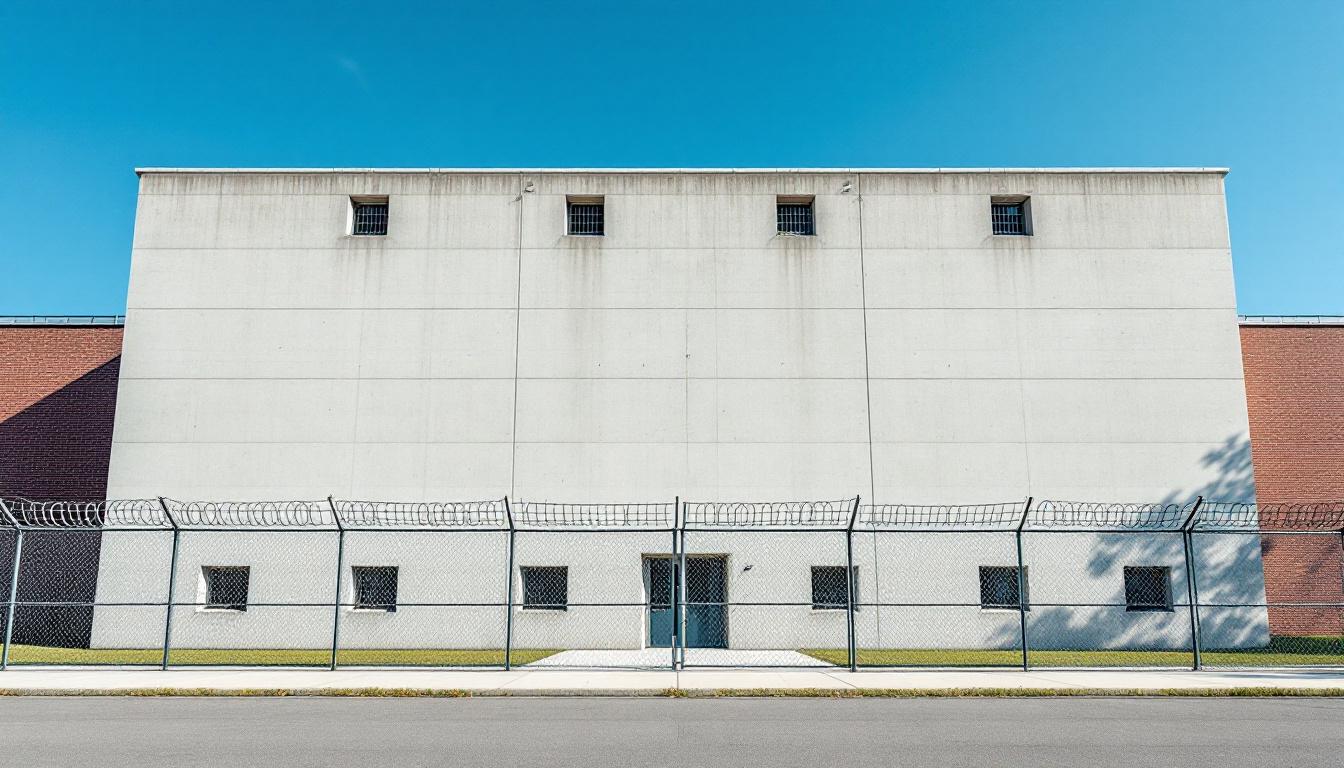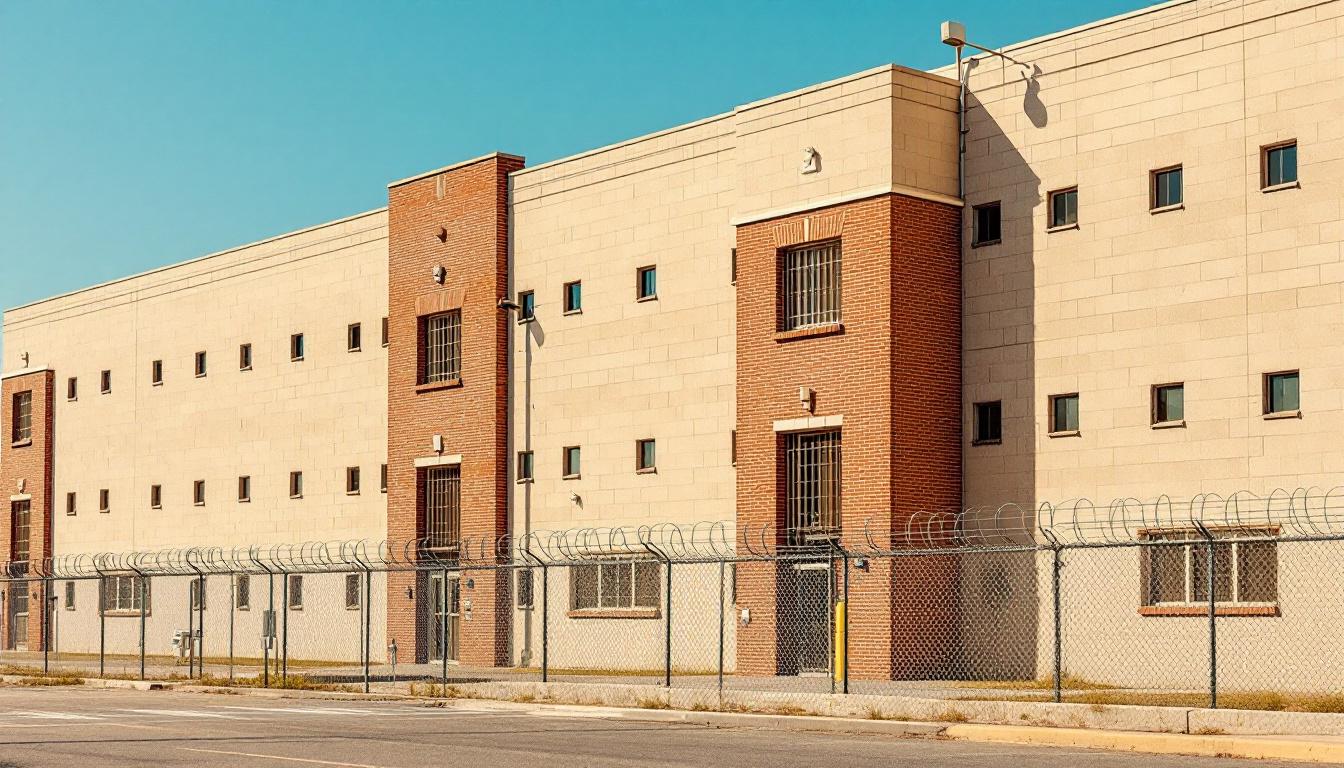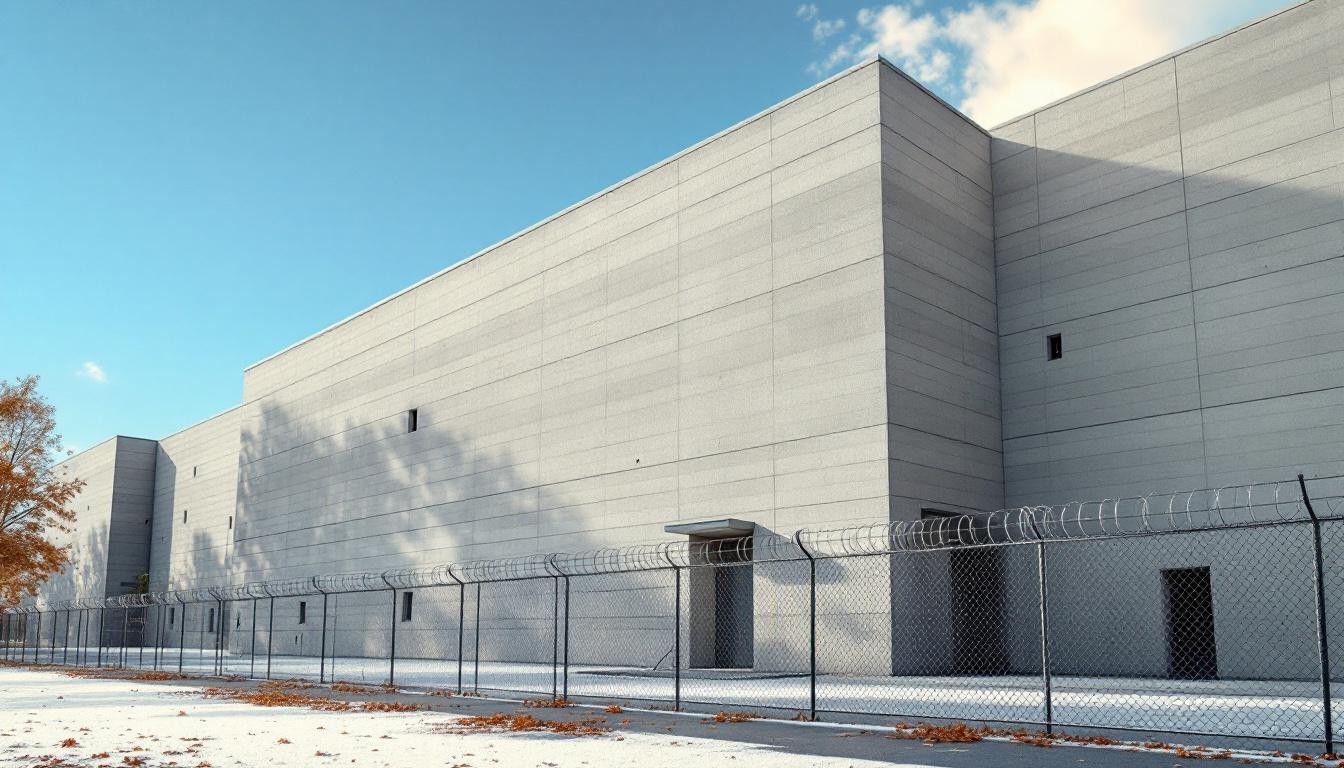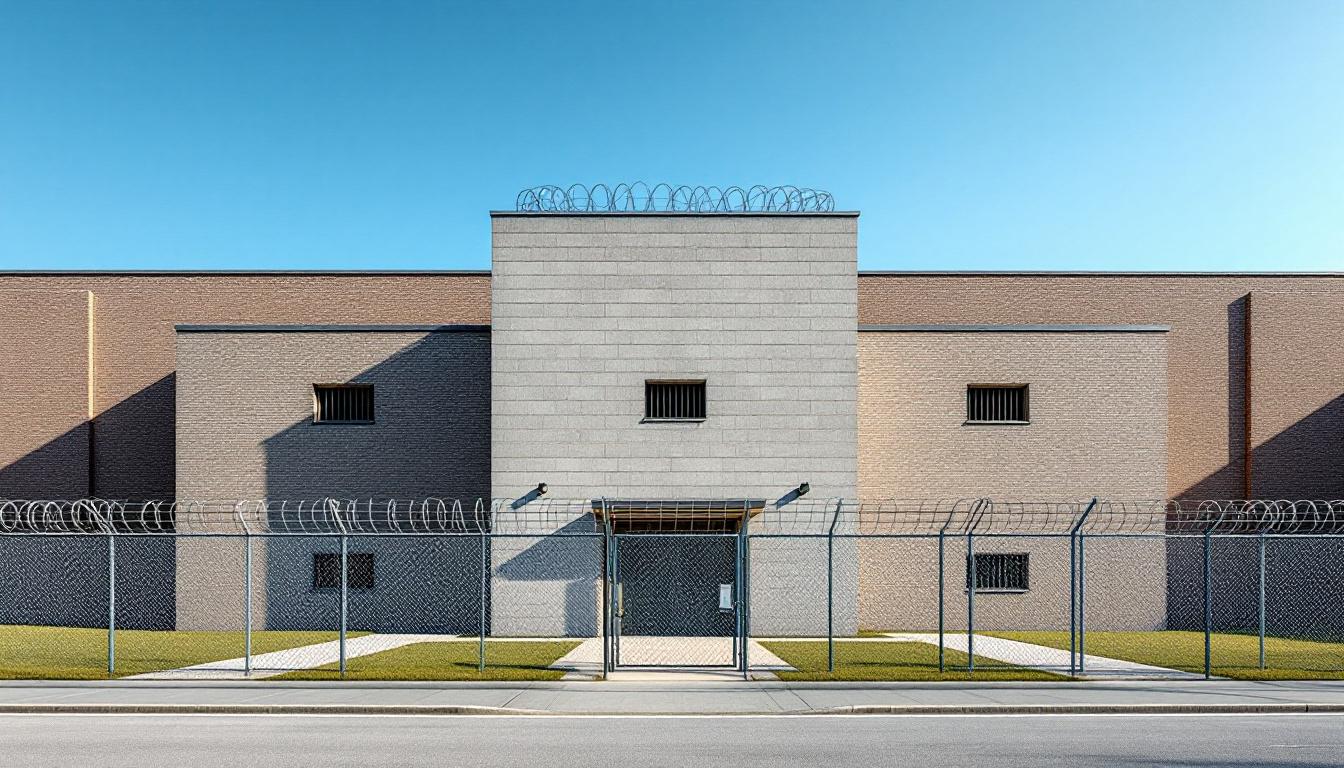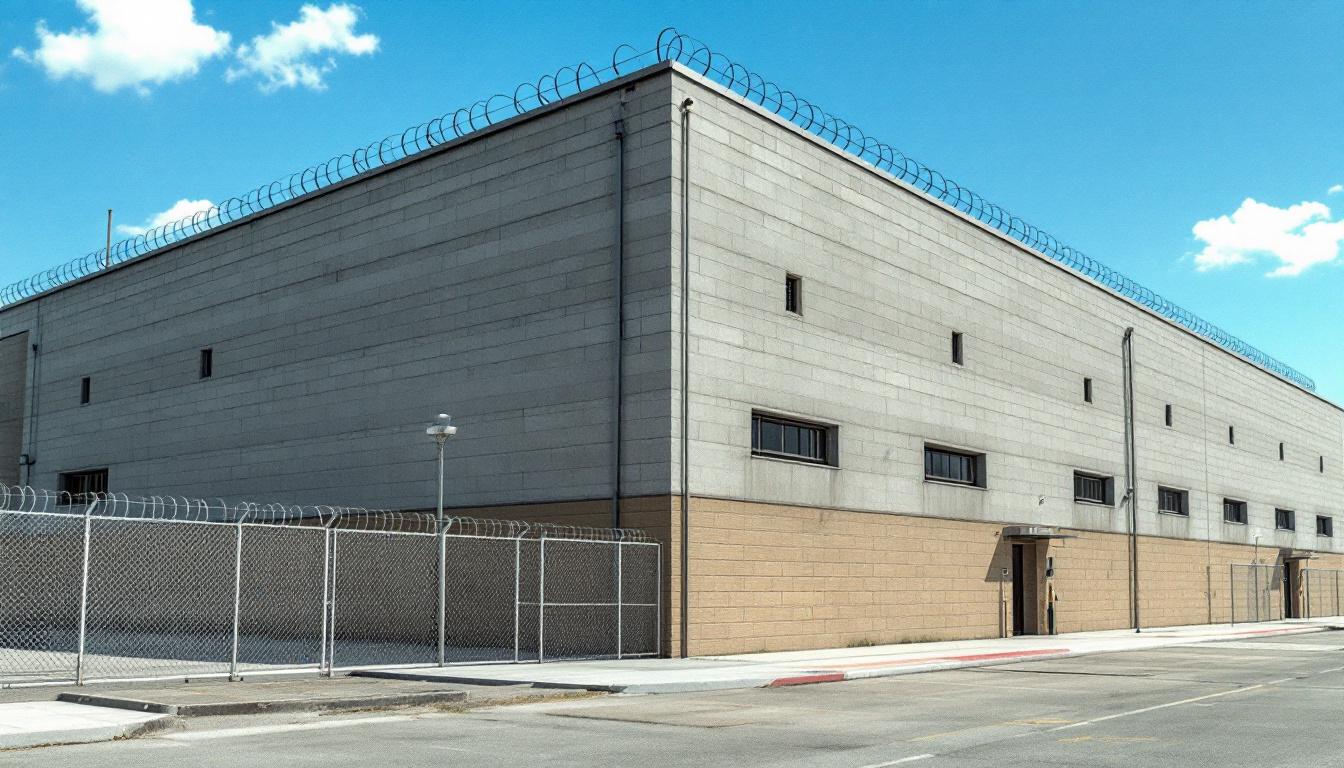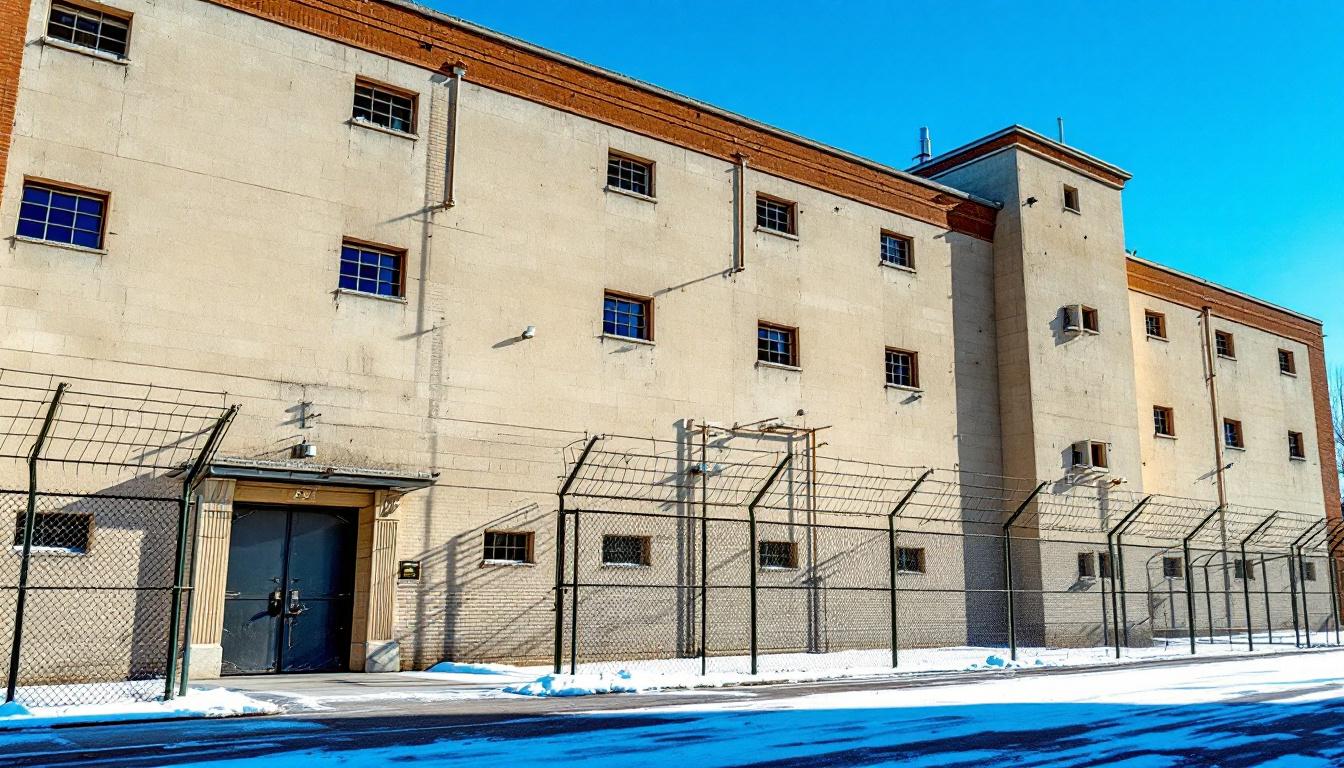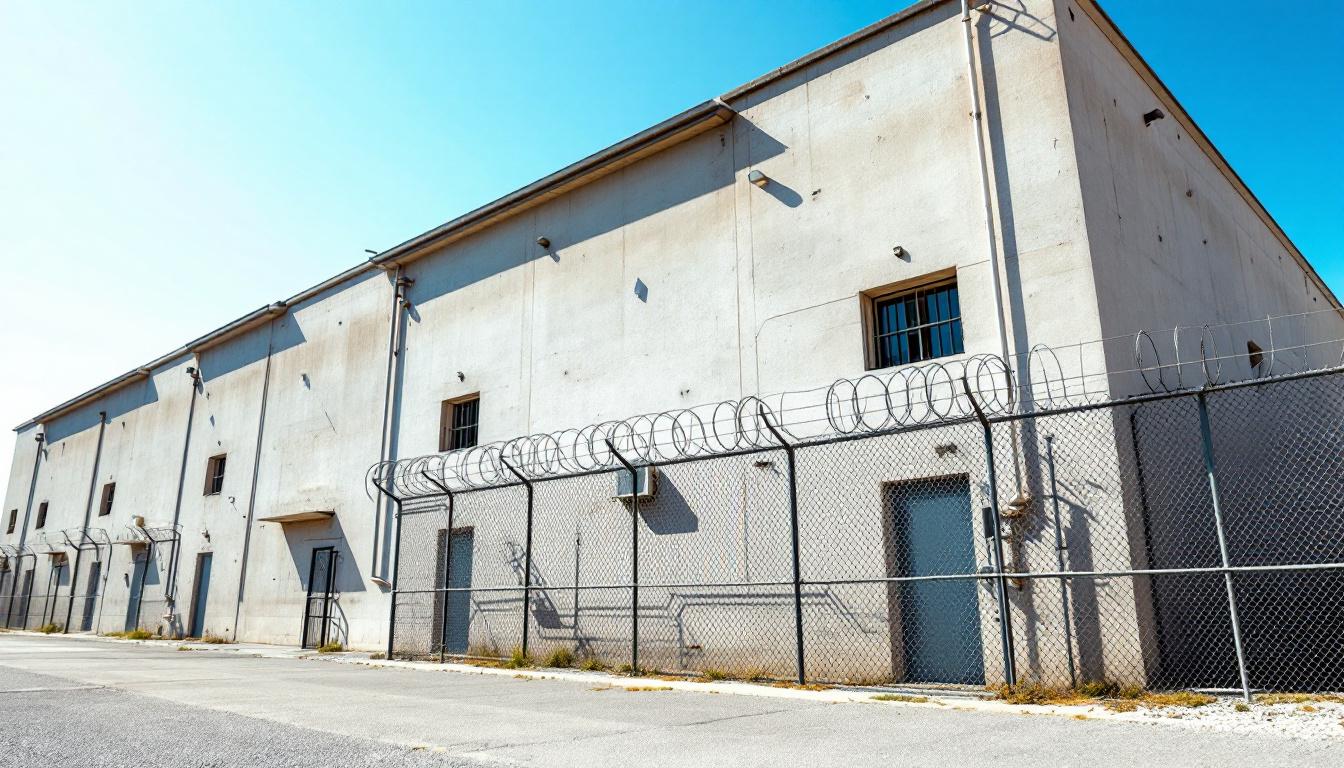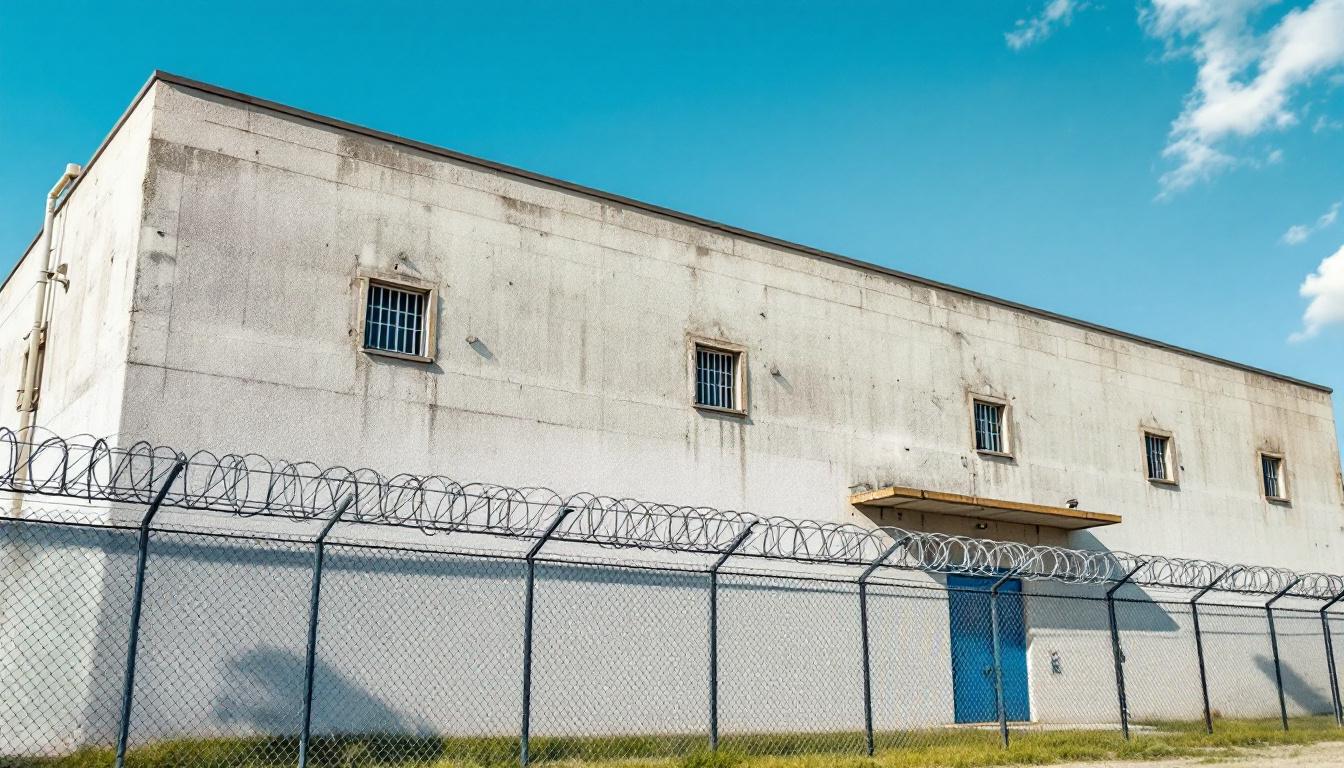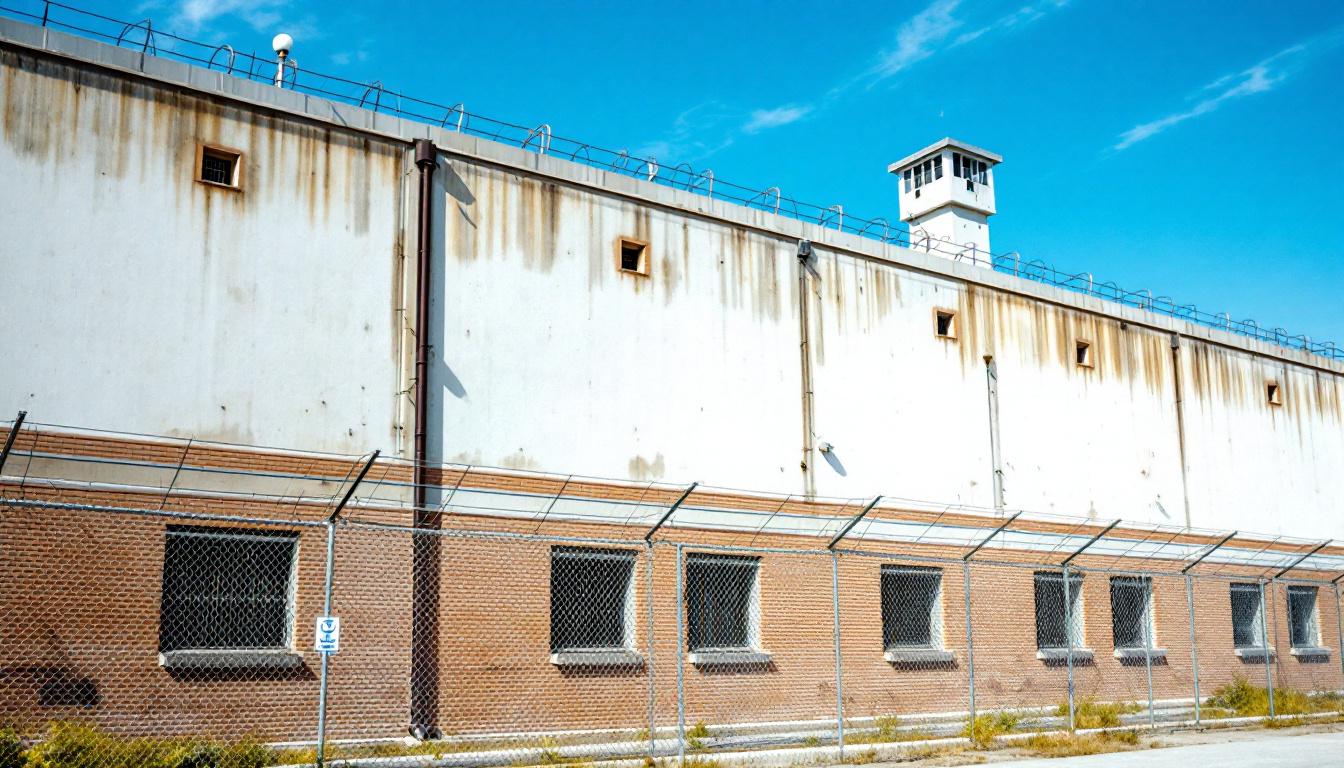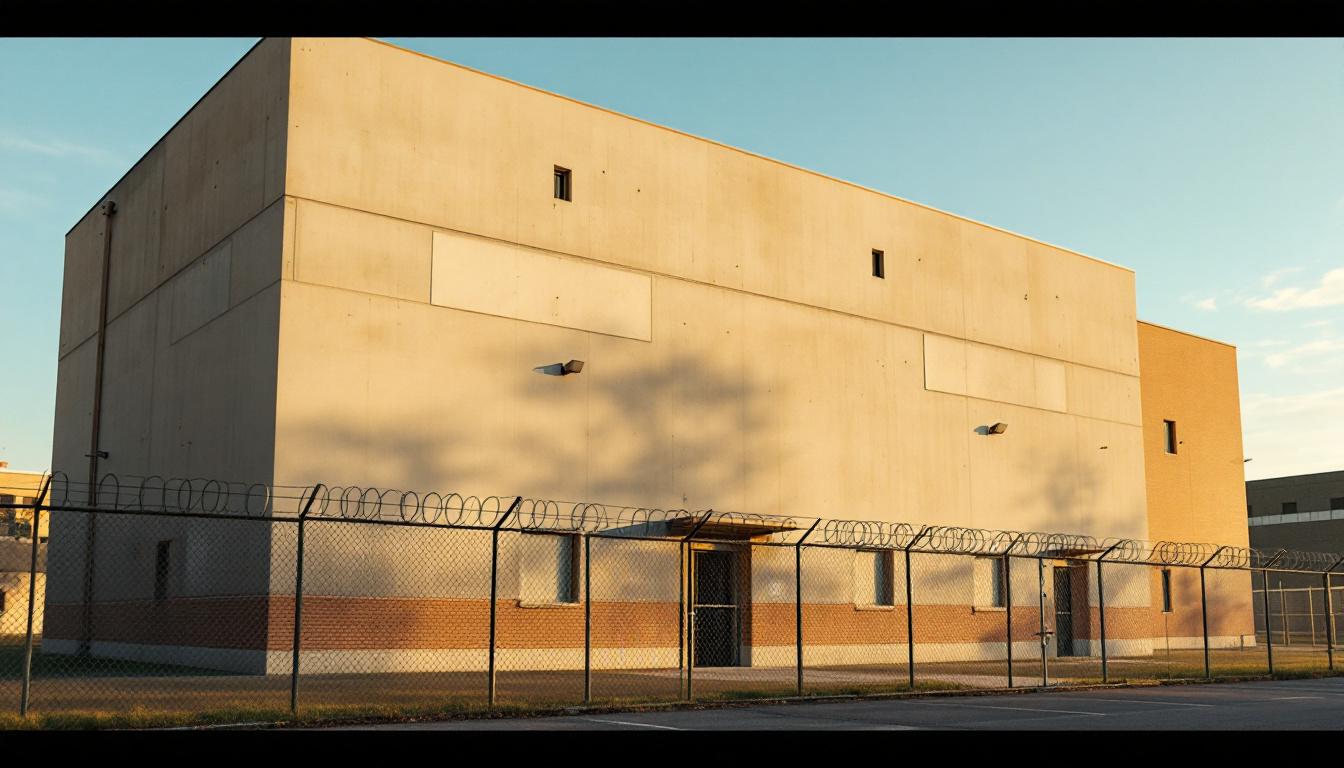
Quick Navigation
How to contact an inmate at MCI-Concord
This comprehensive guide will walk you through how to connect with an inmate at MCI-Concord. Follow the steps below to find an inmate and send letters and photos:
- Search for the inmate using our search tool below
- Create your account or log in to Penmate
- Write your message (up to 6,000 characters)
- Send instantly - inmates receive printed copies daily
Find an Inmate
Search for an inmate to start communicating today
Tip: You can search by first name, last name, or inmate ID number
To contact a person at MCI-Concord start by searching for the person on the official facility website. Perform a search by following these steps:
- Step 1: Enter their first name and last name into the search form and click "Search"
- Step 2: Locate their inmate record
- Step 3: Write down their Inmate ID and any housing information provided
Important! Be sure to enter the person's full name. Nicknames should not be used.
How to Send Messages to Inmates

You can use your phone or computer to send emails, letters, and photos to an inmate. Messages are sent electronically to inmate tablets or kiosks at the facility. If you would like to send a message, start by searching for an inmate at MCI-Concord.
Sending Photos and Postcards

A great way to send love and support to a loved one at MCI-Concord is to send photos and postcards. It only takes a few minutes to send photos from your phone and it makes a huge difference. You can also mail postcards with words of support and inspiration, or design your own postcard for special moments like birthdays and holidays.
Important! Be sure not to send any explicit photos or they may not be approved by the facility. You can also use a photo printing app like Penmate to make sure your photos are printed at the correct size (4x6 or 3x5) and are mailed according to the rules and regulations of MCI-Concord.
Frequently asked questions about MCI-Concord
-
How long does it take to deliver a message?
If you're sending an email message your letter is usually delivered within 24-48 hours. For messages sent via mail you should expect delivery within 3-7 days. All messages will need be approved by MCI-Concord.
-
How much does it cost to send a message to MCI-Concord?
You can send a message free using your phone or mail a message via USPS for the price of a $0.60 stamp and envelope. You can also purchase credits or e-stamps from services starting at $1.99.
-
What services can I use to contact an inmate at MCI-Concord?
Penmate
You can use Penmate to send letters and photos to an inmate from your phone. It's an easy way to stay in touch during your loved one's incarceration. Use the inmate locator to find an inmate's location and contact information, then you can send messages within a few minutes.
Securus messaging
Securus may be another option for communicating with an inmate at MCI-Concord. You can create a friends and family account and purchase credits to send messages. All messages will be reviewed and must be approved by the facility.
JPay
Some county jails and state prisons may support sending messages with JPay. You must register an account with the system, find your loved one, and purchase stamps to send messages. For some locations you can also attach photos.
Smart Jail Mail
You may also check if Smart Jail Mail is available at MCI-Concord. Smart Jail Mail is operated by Smart Communications and has contracted with some state and county jails. After purchasing credits, your messages and photos are sent to the facility, printed out, and then handed out to your loved one.
-
What is the mailing address of MCI-Concord?
Mailing address:
MCI-Concord
965 Elm St
Concord, MA 01742
Phone: (978) 405-6100 -
What are the visiting hours at MCI-Concord?
Visiting hours at MCI-Concord vary by housing unit and security level. Generally, visits are scheduled on weekends and holidays, with some facilities offering weekday visits. Contact the facility directly at (978) 405-6100 or check their website for the current visiting schedule. Visits typically last 30-60 minutes and must be scheduled in advance.
-
What items are prohibited when sending mail to MCI-Concord?
Prohibited items typically include: cash, personal checks, stamps, stickers, glitter, glue, tape, staples, paperclips, polaroid photos, musical or blank greeting cards, hardcover books, magazines with staples, and any items containing metal or electronics. Only send letters on plain white paper with blue or black ink. Photos must be printed on regular photo paper (no Polaroids). Always check with MCI-Concord for their specific mail policies.
-
How do I send money to an inmate at MCI-Concord?
You can send money to an inmate at MCI-Concord through several methods: 1) Online using JPay, Access Corrections, or the facility's approved vendor, 2) Money orders mailed directly to the facility with the inmate's name and ID number, 3) Kiosks located in the facility lobby, or 4) Over the phone using a credit or debit card. Fees vary by method, typically ranging from $2.95 to $11.95 per transaction.
-
Can I schedule a video visit with an inmate at MCI-Concord?
Many facilities now offer video visitation as an alternative to in-person visits. At MCI-Concord, video visits may be available through services like Penmate, Securus Video Connect, GTL, or ICSolutions. Video visits typically cost $10-20 for 20-30 minutes and must be scheduled in advance. You'll need a computer or smartphone with a camera and reliable internet connection. Contact the facility for their specific video visitation policies and approved vendors.
-
What identification do I need to visit an inmate at MCI-Concord?
All visitors must present valid government-issued photo identification such as a driver's license, state ID, passport, or military ID. Minors must be accompanied by a parent or legal guardian who can provide the minor's birth certificate. Some facilities require visitors to be on the inmate's approved visitation list, which may require a background check. Contact MCI-Concord for specific ID requirements and visitor approval procedures.
-
How can I find out an inmate's release date?
To find an inmate's release date at MCI-Concord, you can: 1) Use the online inmate search tool if available, 2) Call the facility's records department, 3) Contact the inmate's case manager or counselor, or 4) Have the inmate provide this information during a call or visit. For privacy reasons, some facilities only release this information to immediate family members.
Facility Overview
Official Website
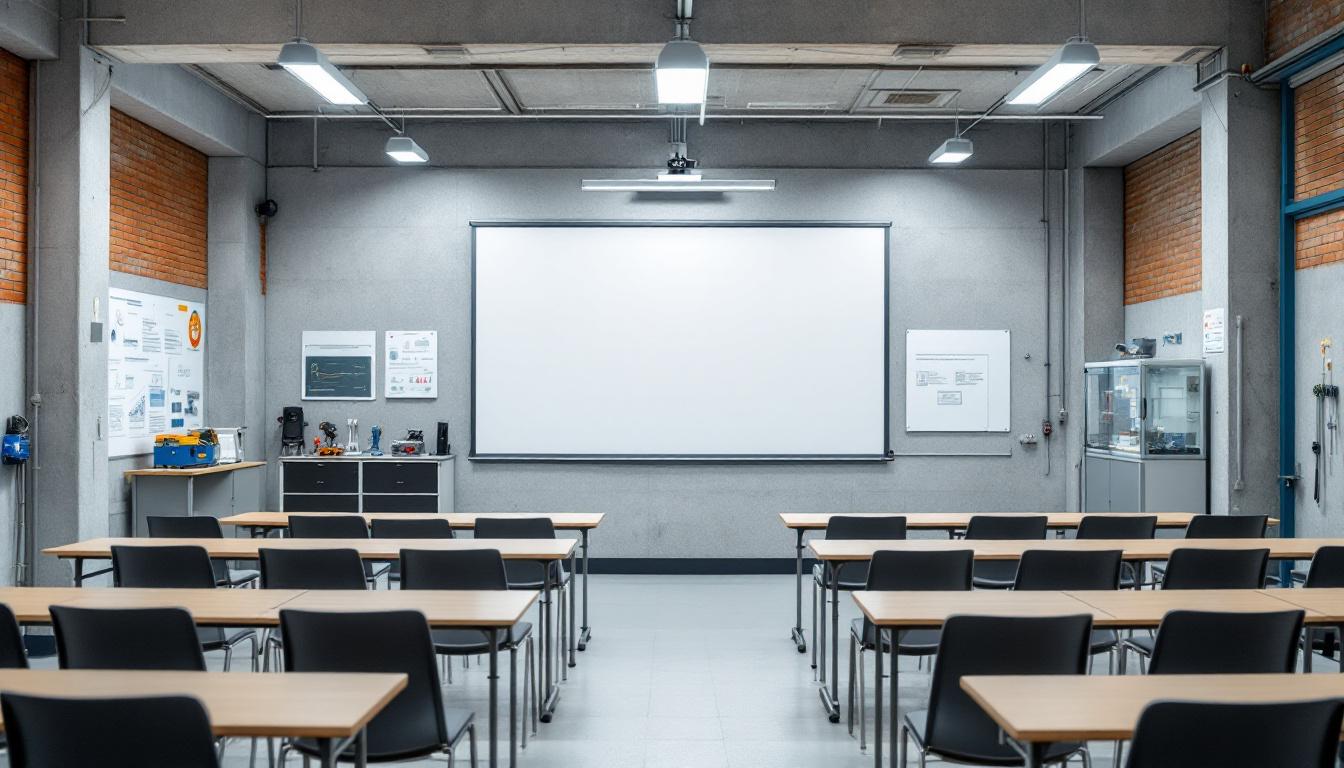
About MCI-Concord
Nestled within the town of Shirley, Massachusetts, this correctional facility plays a vital role in supporting both the incarcerated population and the broader New England community through its comprehensive approach to custody and rehabilitation. The geographic positioning of MCI Concord, MA within Shirley provides strategic access to regional resources while maintaining the security standards expected of a MA correctional facility. This location typically allows for meaningful connections between inmates services and the surrounding communities, fostering opportunities for family visits and community-based support programs that may prove essential during the reintegration process.
The facility generally operates as an integral component of Massachusetts' correctional system, offering various educational and vocational programs designed to prepare individuals for successful reentry into society. Inmates services at this correctional facility often include educational opportunities, substance abuse counseling, and job training programs that align with the employment landscape of central Massachusetts. The rehabilitation focus extends beyond basic programming to encompass mental health support and life skills development, recognizing that effective correctional practices must address the diverse needs of the incarcerated population while maintaining public safety standards throughout the region.
Programs & Services
Personal transformation through structured intervention forms the cornerstone of rehabilitative services at MCI Concord, where inmates engage with comprehensive programming designed to address the multifaceted challenges of reintegration. The facility's approach emphasizes skill-building and therapeutic growth, recognizing that sustainable change requires both practical competencies and emotional development. Through carefully coordinated service delivery, participants typically access resources that foster self-awareness, accountability, and the development of prosocial behaviors essential for successful community reentry.
Educational services may provide foundational academic support alongside specialized vocational training, with automotive repair programs often serving as a primary pathway for developing marketable technical skills. These educational opportunities typically encompass literacy improvement, high school equivalency preparation, and post-secondary coursework that enables inmates to pursue meaningful employment upon release. The vocational components frequently emphasize hands-on learning experiences that build both technical proficiency and workplace readiness, preparing participants for industries with demonstrated employment demand.
In addition to these academic and technical offerings, the facility often includes comprehensive support services that address personal and family relationships through parenting classes and mentoring programs. Mental health treatment services typically provide therapeutic interventions for inmates managing psychological challenges, substance abuse issues, or trauma-related concerns. Specialized vocational programs, such as upholstery training, may offer additional pathways for skill development while fostering creativity and craftsmanship. These interconnected services work collectively to support inmates' personal development journeys, addressing both immediate needs and long-term goals for successful community integration.
Daily Life & Visitation
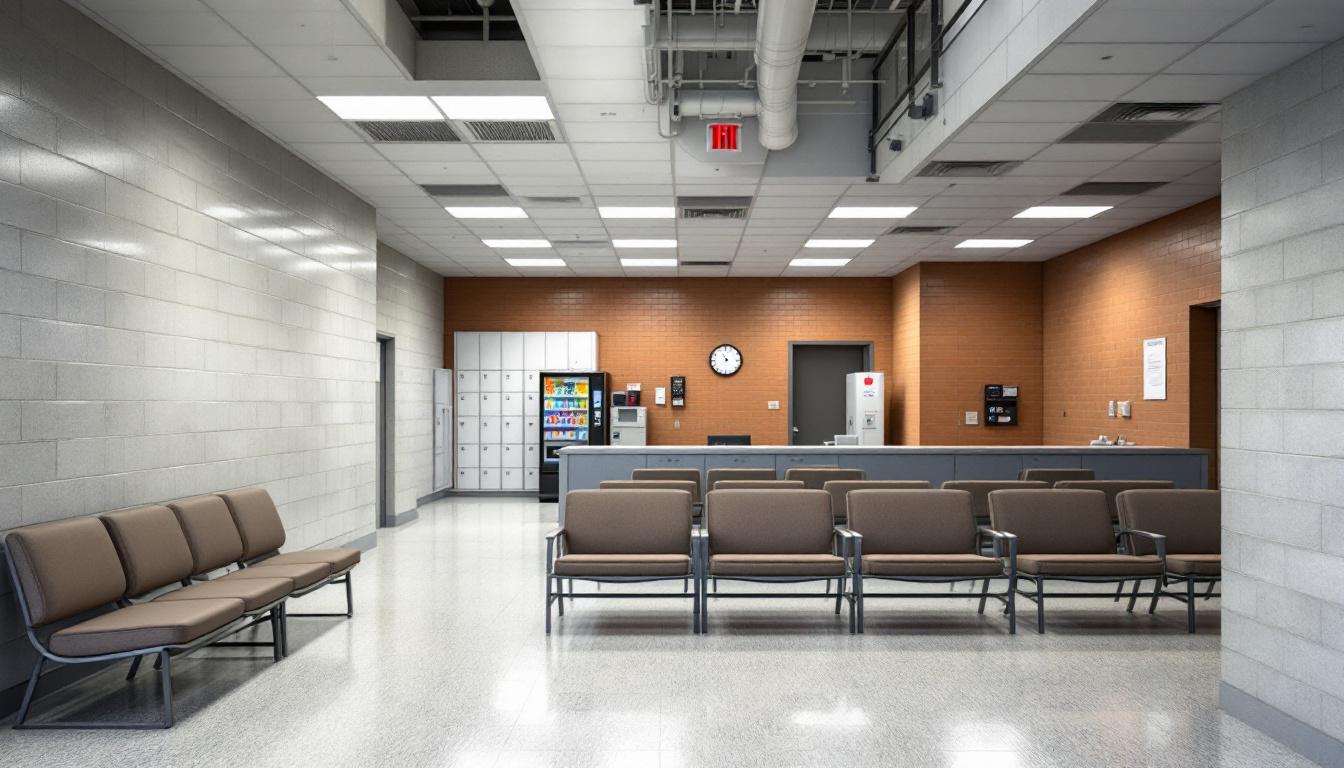
The concrete walls and steel fixtures of the housing units at MCI Concord create an environment where structure becomes the cornerstone of daily existence, with inmates learning to navigate the rhythms of institutional life within dormitory-style accommodations and traditional cell blocks. Today's schedule typically begins before dawn with count procedures, followed by breakfast service in the main dining hall where inmates generally eat meals at designated times in a cafeteria-style setting. Consistently throughout the day, movement between different areas of the facility requires coordination with correctional staff, as inmates adapt to the controlled environment by developing routines around work assignments, educational programming, and recreational activities that provide structure to their time.
Living accommodations at the facility typically include both single and double-occupancy cells, with inmates generally allowed to personalize their spaces with approved personal items purchased through the commissary system. The housing units often feature common areas where inmates may gather during designated periods, and each unit usually maintains specific guidelines regarding personal property, cleanliness standards, and interaction protocols. Despite this controlled environment, inmates often develop informal support networks within their housing areas, learning to coexist respectfully while managing the challenges of limited privacy and shared living spaces.
In addition to this structured living environment, the facility typically offers various work assignments that may include kitchen duties, maintenance tasks, and facility operations, providing inmates with opportunities to develop skills while contributing to daily operations. Educational programming and vocational training sessions generally occur throughout the week, offering structured activities that help inmates prepare for eventual reintegration. Family connections remain vital through regular visitation schedules and telephone privileges, with inmates usually able to maintain contact with loved ones through approved communication channels, while recreational opportunities such as gymnasium access, outdoor recreation time, and library services provide essential outlets for physical activity and personal development within the institutional setting.
Ready to Connect?
Start communicating with your loved one today
Search for an Inmate
